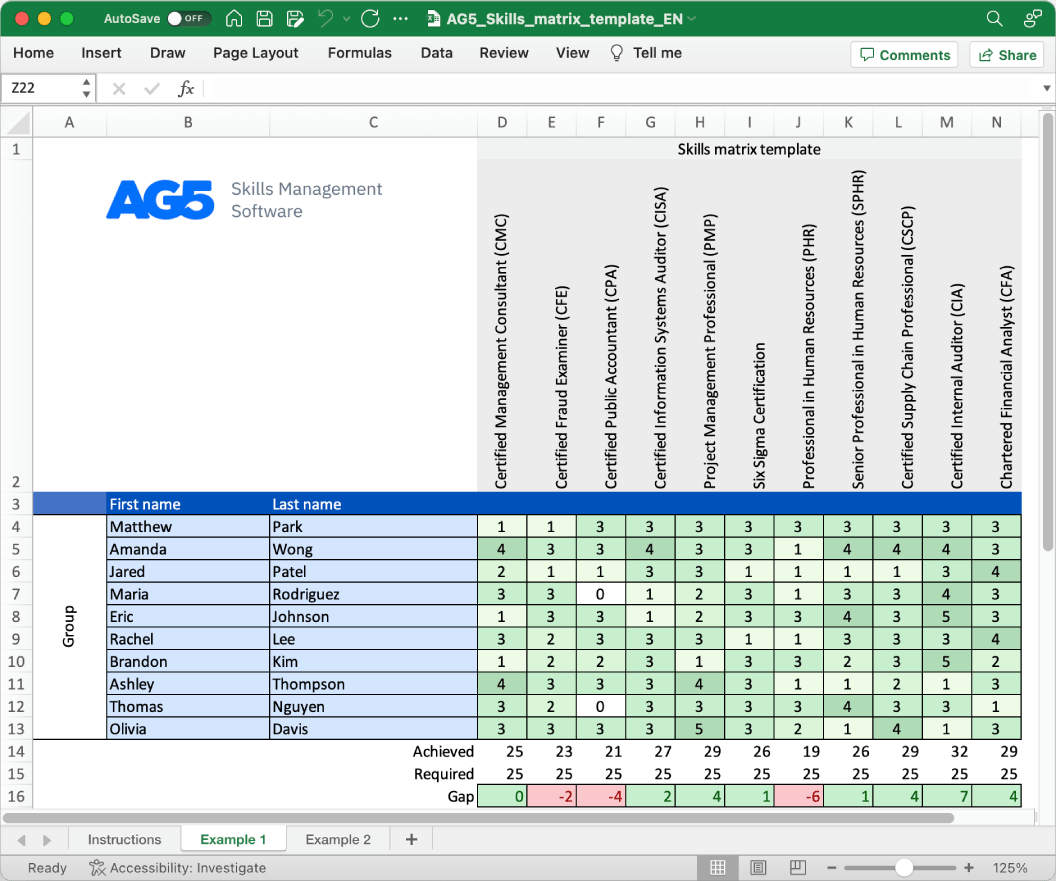Training skills matrix template for regulated industries
A skills matrix is a tool teams can use to effectively manage and assess their skills and knowledge of training in regulated industries.
Download your free template here

Overview Copied
With our free training skills matrix template for regulated industries, you will receive a clear overview of the skills that are present in your organization, as well as those that are missing. Using this information, you can develop and implement a plan to ensure that your employees’ skills are up to date, comprehensive, compliant, and ready for the future.
- Certified Training and Development Professional (CTDP)
- Certified Compliance Professional (CCP)
- Certified Regulatory Compliance Manager (CRCM)
- Certified Training Manager (CTM)
- Certified Online Training Professional (COTP)
- Certified Instructional Designer (CID)
- Certified GMP Training Specialist
- Certified Pharmaceutical GMP Professional (CPGP)
- Certified Medical Device GMP Professional (CMDGP)
- Certified Healthcare Compliance Professional (CHC)
- Certified Training Program Manager (CTPM)
- Certified eLearning Professional (CELP)
- Certified Clinical Training Specialist (CCTS)
- Certified Validation Professional (CVP)
- Certified Instructional Technologist (CIT)
- Certified Training Evaluation Professional (CTEP)
- Certified Documentation Specialist (CDS)
- Certified Training Delivery Specialist (CTDS)
- Certified Regulatory Affairs Professional (CRAP)
- Certified Professional in Learning and Performance (CPLP)
Benefits Copied
Skills management software is important in training for regulated industries as it allows organizations to track and manage the skills and qualifications of employees, ensuring they receive the appropriate training to meet regulatory requirements and maintain competency in their roles.
Author Copied
Revisions Copied
Tired of managing skills in Excel?
Say goodbye to Excel matrices. Start using AG5’s plug and play skill matrix software.
Recognized by G2 for Excellence in Skills Management

